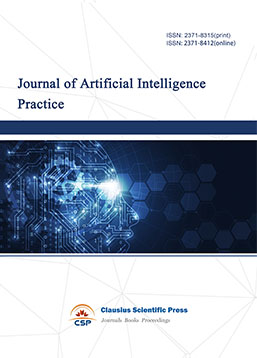Personalised Dormitory Roommate Matching System Based on Multiple Swarm Genetic Algorithms
DOI: 10.23977/acss.2024.080317 | Downloads: 94 | Views: 1959
Author(s)
Lingyu Zhang 1, Lili Wang 1, Yiyang Dai 1, Qisheng Chen 1, Jinxuan Shen 1, Hao Lin 1
Affiliation(s)
1 School of Computer Science and Technology, Harbin University of Science and Technology, Harbin, China
Corresponding Author
Lili WangABSTRACT
In order to allocate suitable dorm rooms for students more effectively and improve the matching degree of interests, living habits and future plans between roommates, this paper designs a personalised dorm room roommate matching system based on multiple swarm genetic algorithms. The system uses Vue framework to build the front-end, which is responsible for user interaction and information collection; the back-end uses Golang language to process the data and call the dormitory allocation procedure; the database uses SQLite to store the data; and the dormitory allocation procedure is based on multiple cluster genetic algorithms written in Python. Student information is collected through a front-end questionnaire, and the user can manually set the weight of each preference. The system will automatically iterate the optimal roommate assignment programme and return the results to the front-end.
KEYWORDS
Roommate Matching System, Multiple Swarm Genetic Algorithm, Vue, GolangCITE THIS PAPER
Lingyu Zhang, Lili Wang, Yiyang Dai, Qisheng Chen, Jinxuan Shen, Hao Lin, Personalised Dormitory Roommate Matching System Based on Multiple Swarm Genetic Algorithms. Advances in Computer, Signals and Systems (2024) Vol. 8: 121-128. DOI: http://dx.doi.org/10.23977/acss.2024.080317.
REFERENCES
[1] Gao Miao. (2010). How to Prevent College Dormitory Conflicts and Resolve Disputes. Journal of College Advisor, (02), 19-21. doi:10.13585/j.cnki.gxfdyxk.2010.02.007.
[2] Sacerdote, B. (2001). Peer effects with random assignment: Results for Dartmouth roommates. The Quarterly journal of economics, 116(2), 681-704.
[3] Deng Xihui. (2011). Greedy Algorithm Scheduling System Research. Computer & Telecommunication, (07), 29-30. doi:10.15966/j.cnki.dnydx.2011.07.010.
[4] Wang Wenfa, Ma Yan, & Li Hongda. (2008). Application and research of backtracking algorithm based on matrix storage in multi-constraint assignment problem. Journal of Southwest Minzu University (Natural Science Edition), (05), 935-939.
[5] Sun Huiting & Ma Jian. (2019). Research on College Intelligent Dormitory Allocation Based on K-means Algorithm. Computer & Telecommunication, (05), 29-32. doi:10.15966/j.cnki.dnydx.2019.05.008.
[6] Zhang Quan, Xue Shanshan, & Zou Chengdong. (2023). Protection and Development Strategy and Classification of Historical and Cultural Villages in Anhui Based on K-modes Clustering Algorithm. Huazhong Architecture, (01), 23-27. doi:10.13942/j.cnki.hzjz.2023.01.018.
[7] Mei Zhen, Gong Jiacheng, Gao Yichao, Wei Lin, & Li Haifeng. (2024). Integrated optimization of structure and control systems based on a modified adaptive multi-population genetic algorithm. Journal of Central South University: Science and Technology, (02), 799-809.
[8] Gao Hongjian, Chen Linzhouting, Hu Jianxing, Su Xiaodong, Wang Yangsheng, & Wang Wenju. (2024). Research on Self-optimizing Method of Missile Stability Control Parameters Based on Improved Genetic Algorithm. Machinery & Electronics, (04), 22-28.
[9] Han Yuchen, Lyu Weicai, Zhong Chen, Xiao Xingxing, & Liu Qinghua. (2021). Research on Geomagnetic Indoor Positioning Algorithm Based on MPGA-SVM. Radio Engineering, (11), 1313-1319.
| Downloads: | 42511 |
|---|---|
| Visits: | 883333 |
Sponsors, Associates, and Links
-
Power Systems Computation

-
Internet of Things (IoT) and Engineering Applications

-
Computing, Performance and Communication Systems

-
Journal of Artificial Intelligence Practice

-
Journal of Network Computing and Applications

-
Journal of Web Systems and Applications

-
Journal of Electrotechnology, Electrical Engineering and Management

-
Journal of Wireless Sensors and Sensor Networks

-
Journal of Image Processing Theory and Applications

-
Mobile Computing and Networking

-
Vehicle Power and Propulsion

-
Frontiers in Computer Vision and Pattern Recognition

-
Knowledge Discovery and Data Mining Letters

-
Big Data Analysis and Cloud Computing

-
Electrical Insulation and Dielectrics

-
Crypto and Information Security

-
Journal of Neural Information Processing

-
Collaborative and Social Computing

-
International Journal of Network and Communication Technology

-
File and Storage Technologies

-
Frontiers in Genetic and Evolutionary Computation

-
Optical Network Design and Modeling

-
Journal of Virtual Reality and Artificial Intelligence

-
Natural Language Processing and Speech Recognition

-
Journal of High-Voltage

-
Programming Languages and Operating Systems

-
Visual Communications and Image Processing

-
Journal of Systems Analysis and Integration

-
Knowledge Representation and Automated Reasoning

-
Review of Information Display Techniques

-
Data and Knowledge Engineering

-
Journal of Database Systems

-
Journal of Cluster and Grid Computing

-
Cloud and Service-Oriented Computing

-
Journal of Networking, Architecture and Storage

-
Journal of Software Engineering and Metrics

-
Visualization Techniques

-
Journal of Parallel and Distributed Processing

-
Journal of Modeling, Analysis and Simulation

-
Journal of Privacy, Trust and Security

-
Journal of Cognitive Informatics and Cognitive Computing

-
Lecture Notes on Wireless Networks and Communications

-
International Journal of Computer and Communications Security

-
Journal of Multimedia Techniques

-
Automation and Machine Learning

-
Computational Linguistics Letters

-
Journal of Computer Architecture and Design

-
Journal of Ubiquitous and Future Networks


 Download as PDF
Download as PDF